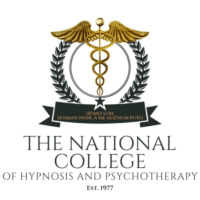
Our Teaching Approach
What sets us apart is the quality of our teaching. We are not therapists who teach, we are therapists who are also teachers and we continuously strive to bring you a sector-leading educational experience.
We understand our responsibility to create the best environment for you to learn and we have refined that over decades with adult learners who are time-poor but have a wealth of lived experience, often returning to study after career or family breaks.
We focus on inclusion and welcoming your practical and academic skill sets into our college. We balance the need to learn both the skills and the theory that create effective and professional therapists.
How We Teach
Our model has core teaching materials, online support resources relating to classes and independent practical exercises. Our personal teaching philosophy (inspired by Carl Rogers’ pedagogical approach) integrates person-centred theory in an equal and collaborative alliance between tutor and student, emphasising personal meaning.
We avoid lengthy lecture periods in class in favour of active participation in the learning which improves understanding and retention of knowledge.
Practical skills are introduced from the very beginning of your study and complement course materials, wider structured reading and lectures. As our students are adult learners, we offer tailored reading lists reflecting learning needs and preferences.
Your time demands are helped by online access to materials in flexible learning environments which you can tailor to your extra-curricular demands in a blended learning programme, reflecting your needs and input.
How You Are Assessed
Learning outcomes are clearly set out to you throughout the stages of your pathway so that you know your learning aims and can check your progress against them.
Assessment is constructively aligned to the content taught in class so that you are asked to submit assignments at the point that you have received all the relevant learning on the topic being assessed.
Feedback is constructive with clear suggestions of how improvements can be made and our marking criteria are explained fully so that you understand exactly what is expected of you.
We believe in giving you as much control over shaping your student experience as possible so we build some optionality into your pathway and you have choice in some of the assignments you need to complete for assessment.
We encourage you (although it is not compulsory after Stage 1) to make use of our SCARF system which reflects our core teaching values of:
- Structure
- Clarity
- Assessment
- Review
- Focus
SCARF is a personal one-to-one online feedback portal between you and your tutor, helping you to assess your progress throughout your studies and allowing you to give and receive personalised feedback in a non-classroom environment so that you can review your learning goals and stay on track, your SCARF content is not assessed after Stage 1.
Balancing Time Demands
Training is on a part-time basis combining once monthly weekend attendance for practical tuition and lectures with a programme of home study designed around your family and work commitments.
Each weekend consists of 14 hours theory and practical work, later stages of the pathways include online discussions via virtual classrooms and guided home reading supported by comprehensive notes.
Returning to Education
We understand that whilst meeting the educational standards required to join a pathway, you may not have had the opportunity for some time to engage in study and may need a gradual reintroduction to a learning environment. With this in mind our courses start with practical instruction, the academic content being introduced gradually.
We recognise that our students are busy people with a wealth of experience and prior learning. Some of our learners are ready immediately to hit the ground running with writing essays and other assignments, whereas others may be out of practice with academic work or just lack confidence in their own writing skills.
We have therefore prepared a package of support materials for those who may need it. For those who feel they want a little extra support, we can put you in touch with one of our teaching support team who can read and comment on a draft of your assignment for a fee, this option can be particularly helpful to students who are newly returning to higher education.
Personal Development
Personal development is not central to our training but is important, we understand that becoming a therapist requires academic, practical and personal work and we are here to support and guide you through the process at all stages, we know the journey because we have taken it ourselves.
Our Blended Learning Methods, How You Learn at a Glance:
- Flexible learning environments
- Structured modular programmes
- Attendance at taught weekends
- Lectures
- Tutorials
- Practical demonstrations
- Observing and participating in practical exercises
- Round the table discussions
- Case studies
- Discussion forums and evening tutorials
- Remote access to online teaching platforms
- Home study of course notes
- Guided background reading
- Multi-media content including video and audio
- Continuous assessment
- Constructive feedback
- Access to tutors
- Group work and presentations
